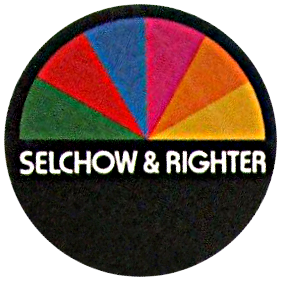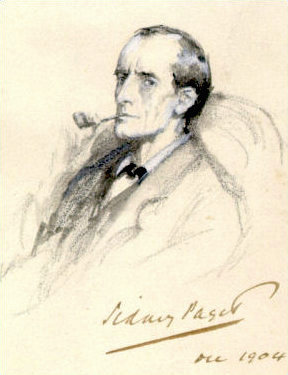
Peter Michael Falk was an American film and television actor, singer and television director and producer. He is best known for his role as Lieutenant Columbo on the NBC/ABC series Columbo, for which he won four Primetime Emmy Awards and a Golden Globe Award (1973). In 1996, TV Guide ranked Falk No. 21 on its 50 Greatest TV Stars of All Time list. He received a posthumous star on the Hollywood Walk of Fame in 2013.

Trivial Pursuit is a board game in which winning is determined by a player's ability to answer trivia and popular culture questions. Players move their pieces around a board, the squares they land on determining the subject of a question they are asked from a card. Each correct answer allows the player's turn to continue; a correct answer on one of the six "category headquarters" spaces earns a plastic wedge which is slotted into the answerer's playing piece. The object of the game is to collect all six wedges from each "category headquarters" space, and then return to the center "hub" space to answer a question in a category selected by the other players.

Columbo is an American crime drama television series starring Peter Falk as Lieutenant Columbo, a homicide detective with the Los Angeles Police Department. After two pilot episodes in 1968 and 1971, the show originally aired on NBC from 1971 to 1978 as one of the rotating programs of The NBC Mystery Movie. Columbo then aired on ABC as a rotating program on The ABC Mystery Movie from 1989 to 1990, and on a less frequent basis from 1990 to 2003.
Dastar Corp. v. Twentieth Century Fox Film Corp., 539 U.S. 23 (2003), was a copyright and trademark case of the Supreme Court of the United States involving the applicability of the Lanham Act to a work in the public domain.
Fictitious or fake entries are deliberately incorrect entries in reference works such as dictionaries, encyclopedias, maps, and directories, added by the editors as copyright traps to reveal subsequent plagiarism or copyright infringement. There are more specific terms for particular kinds of fictitious entry, such as Mountweazel, trap street, paper town, phantom settlement, and nihilartikel.

Bare-Faced Messiah: The True Story of L. Ron Hubbard is a posthumous biography of Scientology founder L. Ron Hubbard by British journalist Russell Miller. First published in the United Kingdom on 26 October 1987, the book takes a critical perspective, challenging the Church of Scientology's account of Hubbard's life and work. It quotes extensively from official documents acquired using the Freedom of Information Act and from Hubbard's personal papers, which were obtained via a defector from Scientology. It was also published in Australia, Canada and the United States.
Parker v. Flook, 437 U.S. 584 (1978), was a 1978 United States Supreme Court decision that ruled that an invention that departs from the prior art only in its use of a mathematical algorithm is patent eligible only if there is some other "inventive concept in its application." The algorithm itself must be considered as if it were part of the prior art, and the claim must be considered as a whole. The exact quotation from the majority opinion is: "Respondent’s process is unpatentable under §101, not because it contains a mathematical algorithm as one component, but because once that algorithm is assumed to be within the prior art, the application, considered as a whole, contains no patentable invention." "The fact that the algorithm may not have actually been known previously and that, when taken in combination with other claim elements, it might produce an invention that is novel and nonobvious, plays no part in the analysis."
Trivial Pursuit is an American game show that ran on The Family Channel from June 7, 1993, to December 30, 1994. Loosely based on the board game of the same name, it is hosted by Wink Martindale with Randy West announcing.
The Da Vinci Code, a popular suspense novel by Dan Brown, generated criticism and controversy after its publication in 2003. Many of the complaints centered on the book's speculations and misrepresentations of core aspects of Christianity and the history of the Catholic Church. Additional criticisms were directed toward the book's inaccurate descriptions of European art, history, architecture, and geography.

Selchow and Righter was a 19th- and 20th-century game manufacturer best known for the games Parcheesi and Scrabble. It was based in Bay Shore, New York.
In United States copyright law, transformative use or transformation is a type of fair use that builds on a copyrighted work in a different manner or for a different purpose from the original, and thus does not infringe its holder's copyright. Transformation is an important issue in deciding whether a use meets the first factor of the fair-use test, and is generally critical for determining whether a use is in fact fair, although no one factor is dispositive.

Castle Rock Entertainment Inc. v. Carol Publishing Group, 150 F.3d 132, was a U.S. copyright infringement case involving the popular American sitcom Seinfeld. Some U.S. copyright law courses use the case to illustrate modern application of the fair use doctrine. The United States Court of Appeals for the Second Circuit upheld a lower court's summary judgment that the defendant had committed copyright infringement. The decision is noteworthy for classifying Seinfeld trivia not as unprotected facts, but as protectable expression. The court also rejected the defendant's fair use defense finding that any transformative purpose possessed in the derivative work was "slight to non-existent" under the Supreme Court ruling in Campbell v. Acuff-Rose Music, Inc., 510 U.S. 569 (1994).

Jacobsen v. Katzer was a lawsuit between Robert Jacobsen (plaintiff) and Matthew Katzer (defendant), filed March 13, 2006 in the United States District Court for the Northern District of California. The case addressed claims on copyright, patent invalidity, cybersquatting, and Digital Millennium Copyright Act issues arising from Jacobsen under an open source license developing control software for model trains.
Feist Publications, Inc., v. Rural Telephone Service Co., 499 U.S. 340 (1991), was a landmark decision by the Supreme Court of the United States establishing that information alone without a minimum of original creativity cannot be protected by copyright. In the case appealed, Feist had copied information from Rural's telephone listings to include in its own, after Rural had refused to license the information. Rural sued for copyright infringement. The Court ruled that information contained in Rural's phone directory was not copyrightable and that therefore no infringement existed.

In copyright law, a derivative work is an expressive creation that includes major copyrightable elements of a first, previously created original work. The derivative work becomes a second, separate work independent from the first. The transformation, modification or adaptation of the work must be substantial and bear its author's personality sufficiently to be original and thus protected by copyright. Translations, cinematic adaptations and musical arrangements are common types of derivative works.
Nubian Jak is a multi-award-winning board game, introduced in 1994, that combines questions on historical facts with pop trivia, to highlight some of the achievements by people of colour globally.
Brian Highley is an English writer.

Salinger v. Random House, Inc., 811 F.2d 90 is a United States case on the application of copyright law to unpublished works. In a case about author J. D. Salinger's unpublished letters, the Second Circuit held that the right of an author to control the way in which their work was first published took priority over the right of others to publish extracts or close paraphrases of the work under "fair use". In the case of unpublished letters, the decision was seen as favoring the individual's right to privacy over the public right to information. However, in response to concerns about the implications of this case on scholarship, Congress amended the Copyright Act in 1992 to explicitly allow for fair use in copying unpublished works, adding to 17 U.S.C. 107 the line, "The fact that a work is unpublished shall not itself bar a finding of fair use if such finding is made upon consideration of all the above factors."

Lieutenant Columbo is the main character in the American detective crime drama television series Columbo created by Richard Levinson and William Link. Columbo is a shrewd and exceptionally observant homicide detective who often disguises his aptitude with his inelegant, shambling manner; trademarks of his blue-collar ethos include his rumpled beige raincoat, cigar and relentless investigative approach.

Klinger v. Conan Doyle Estate, Ltd. was a 2014 decision by the U.S. Court of Appeals for the Seventh Circuit, in response to an appeal filed by the defendants against the 2013 ruling of the U.S. District Court for Northern district of Illinois. These decisions, by the District Court and the Court of the Seventh Circuit, clarified the validity of the use of characters of Sherlock Holmes and his colleague Dr. John Watson, and the story elements, in unlicensed works. Further, the scope of using characters, in the public domain was also clarified.









